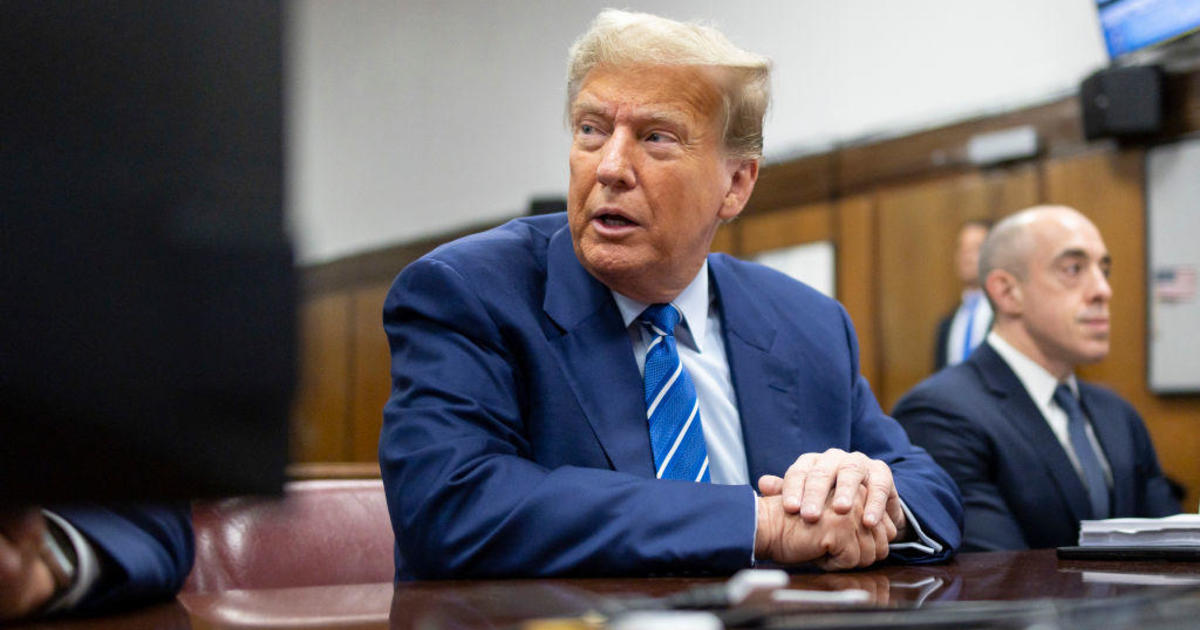What's the deal with the new travel ban?
President Trump rolled out a new travel ban outlining new restrictions on eight countries -- here's what you need to know.
Why is there a new travel ban?
The previous ban, which was designed to only be in effect for 90 days, expired on Sunday. Of course, that one was highly controversial, and this time around, the administration tried to base the ban on more rigorous and specific requirements, so that it'll hold up in court. More on that below.
When will this one expire?
Here's the thing: it probably won't, instead remaining on the books indefinitely. Assuming, of course, that it doesn't get struck down by the courts. Administration officials have made it clear this ban is condition-based, not time-based. Countries that aren't compliant with federal requirements will stay on the restricted list until they come into compliance.
Wait, didn't the courts strike down the last travel ban?
The first travel ban, which was issued in January, was struck down by the courts. A less-sweeping version of the ban, however, was issued in March, shot down again in the courts, and then mostly reinstated in June by the Supreme Court.
This more recent travel ban blocked the issuance of visas to people from Libya, Yemen, Somalia, Iran, Sudan, and Syria, all of which are majority Muslim. The Trump administration argued that this was necessary to stop potential terror attacks in the U.S. The Supreme Court is taking up the more recent ban again in October. And on Sunday, the Justice Department suggested that the Court direct the parties to ask for supplemental briefings (that would be due next week) to address how the president's proclamation will affect the existing travel ban case currently before the Court.
What countries will be included in this new ban?
According to the proclamation signed by the president, the ban will apply to Chad, Iran, Libya, North Korea, Somalia, Syria, Venezuela and Yemen. They have all been deemed to have "inadequate" identity-management protocols, information-sharing practices, and risk factors. The U.S. is implementing travel limitations and restrictions unique to the foreign nationals of each country.
Acting Homeland Security Secretary Elaine Duke also assessed that Iraq did not meet the baseline but concluded that entry restrictions and limitations under the proclamation are not warranted for Iraq. Duke, according to officials, recommended that Iraqi nationals seeking entry into the U.S. be subject to additional scrutiny to determine if they pose risks to the national security or public safety of the U.S.
The U.S. is easing restrictions on Iran, Libya, Syria, Yemen and Somalia, and it removed restrictions on Sudan altogether. There will be enhanced vetting procedures and new restrictions for four new countries that have been found not to be in compliance with U.S. vetting procedures -- Chad, Iraq, North Korea and Venezuela.
The citizens of countries that refuse to comply with DHS requirements will face travel restrictions and more stringent screening measures that would last indefinitely, until their governments comply.
Will it affect people who already have visas to enter the U.S.?
No. The restrictions on individuals and new countries covered by executive order will not be implemented immediately. Instead, they'll take effect October 18, in what senior administration officials calling a "phased-in implementation period."
How did the new ban come about?
This summer, the U.S. notified a number of countries of its baseline verification standards, which is the information on citizens foreign countries must be able to provide about travelers to the U.S. The State Department gave all countries 50 days to comply, and while most met the verification standards, others did not. Some improved their standards, to U.S. satisfaction, while others declined to cooperate.
Elaine Duke, the acting Homeland Security secretary, then used that information to create a new list of countries subject to the restrictions, and gave that list to the president earlier this month.
The new restrictions, according to senior administration officials, were a result of a worldwide review based on a new baseline for information sharing and for vetting procedures for those seeking entry into the U.S.



